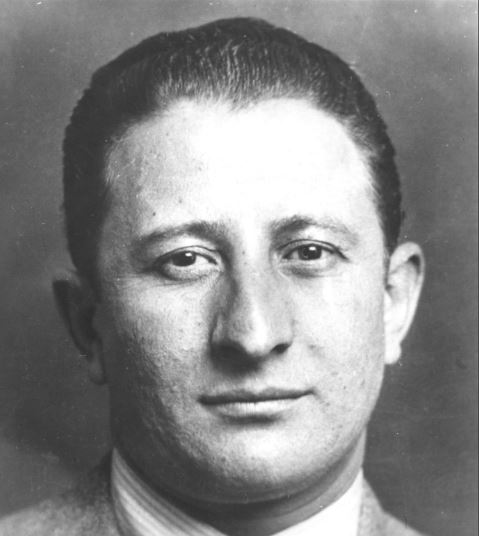The Mafia dons of the mid-20th century were not the wild-eyed street killers of Hollywood imagination. They were sculpted out of patience, style, and control—a breed of men who moved through smoke-filled backrooms and marble lobbies like monarchs without thrones. Frank Costello, Tommy Lucchese, Carlo Gambino, and Charles “Lucky” Luciano set a standard for power that did not rely on shouting matches or bloodstained shirts. They embodied a paradox: ruthless men who dressed like statesmen, killers who spoke softly, strategists who could sit through silence longer than most men could stand to breathe.
They knew that violence was currency, but presence was gold.
Frank Costello: The Gentleman Boss
Frank Costello was known as the “Prime Minister of the Underworld,” not because he swung fists or pulled triggers, but because he could sit across from senators, judges, and mayors and make them feel like allies. His secret was control. Costello never raised his voice, never allowed emotion to distort his words. To him, composure was more than personality—it was armor.
He dressed in tailored suits, his shoes polished to a mirror shine, his silk ties knotted with precision. Costello understood appearances could soften suspicion. If he looked like a businessman, and if he behaved like one, the line between crime and legitimacy blurred. His influence reached into Tammany Hall, city contracts, and liquor licenses. Costello mastered the art of persuasion without force.
The other dons watched him carefully. He proved that one didn’t need to rule through bullets. Respect could be built on restraint.
Tommy Lucchese: The Quiet Craftsman
Tommy Lucchese’s genius was his ability to stay small while thinking big. Short in stature, with a slight limp, Lucchese didn’t cut the figure of a crime boss. Yet, his calm demeanor and sharp intelligence made him one of the most powerful dons in New York.
Lucchese cultivated loyalty through subtlety. He didn’t scream orders; he whispered guidance. His men described him as approachable, almost humble, but never weak. Lucchese built a network through the garment industry, unions, and trucking companies. Like a chess player, he always thought three moves ahead, never letting his ego dictate his play.
His hallmark was patience. He let others brag, fight, and collapse under the weight of their pride. Lucchese knew power rested with those who could control themselves, not those who needed the world to see it.
Carlo Gambino: The Silent Monarch
Carlo Gambino was the embodiment of Mafia royalty—a don who built an empire without ever losing his temper. He rarely raised his voice, and his men said that silence was his deadliest weapon. When Gambino was in the room, words felt unnecessary. A slight nod or raised eyebrow could seal a man’s fate.
Unlike flamboyant bosses who drew attention, Gambino moved like a shadow. He lived in a modest home in Brooklyn, never flaunting riches, never giving law enforcement an easy target. His power came from invisibility. He cultivated respect not by bluster but by his ability to remain untouchable.
Even in moments of betrayal or crisis, Gambino maintained an almost regal calm. His enemies feared him not because of what they heard, but because of what they never heard—no threats, no warnings, only quiet decisions that ended in disappearance.
Lucky Luciano: The Architect of Cool
Charles “Lucky” Luciano was the architect of modern organized crime. He restructured the Mafia from warring street gangs into The Commission, a boardroom of bosses. His greatest weapon wasn’t violence but vision.
Luciano always appeared in control. He dressed like a Wall Street banker, spoke like a diplomat, and carried himself with an ease that disarmed adversaries. He never let rage dictate his next move. Instead, he measured people like an accountant studying numbers. He knew which alliances mattered, which enemies could be tolerated, and which could not.
What set Luciano apart was his ability to keep the Mafia moving forward. He didn’t cling to old-world codes of Sicilian tradition. He modernized the mob into a business machine. And he did it all without screaming, without chest-beating. Luciano proved the loudest man in the room was rarely the smartest.
The Code of Composure
What bound these dons together was not just blood or business—it was philosophy. They understood that true power was quiet. Any street thug could shoot, stab, or shout. But it took mastery of self to remain calm when surrounded by chaos.
They dressed impeccably because presentation meant power. A well-tailored suit could open doors violence could not. They stayed composed because anger clouded judgment. A man who lost his temper lost the game. And they never raised their voices because in their world, whispers carried farther than shouts.
The dons were predators, but they were predators who understood patience. Like wolves circling a weakened prey, they waited for the right moment to strike, never wasting energy, never risking exposure.
The Legacy of the Gentleman Don
Today, the image of the Mafia boss has been shaped by Hollywood—gunfire, shouting, hot-headed bosses losing control. But the real dons of old knew better. Their kingdoms were built not just on violence but on discipline.
Frank Costello, Tommy Lucchese, Carlo Gambino, and Lucky Luciano thrived because they mastered the art of staying cool under pressure. They embodied the paradox of power: ruthless yet refined, dangerous yet composed. Their voices never needed to rise, because their authority spoke louder than any threat.
They were kings without crowns, ruling not from thrones, but from silence.


